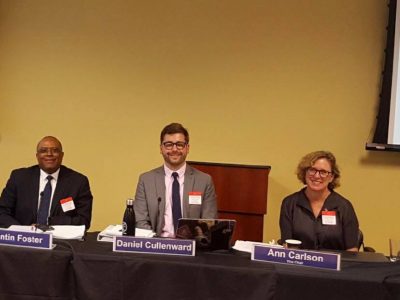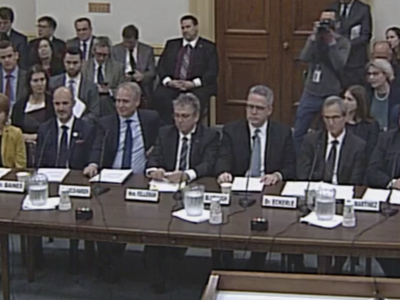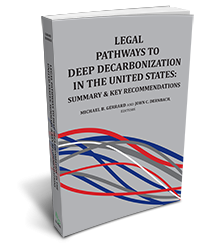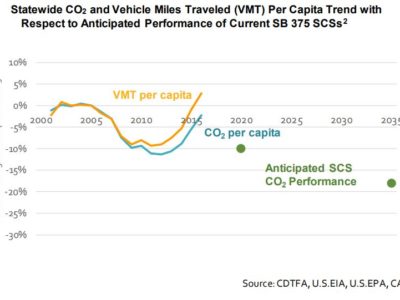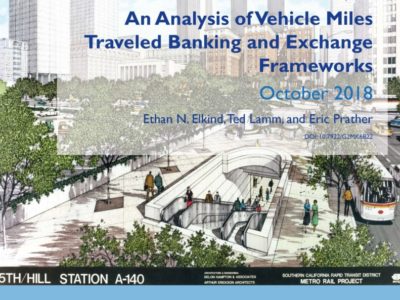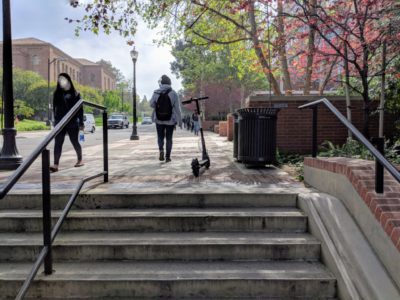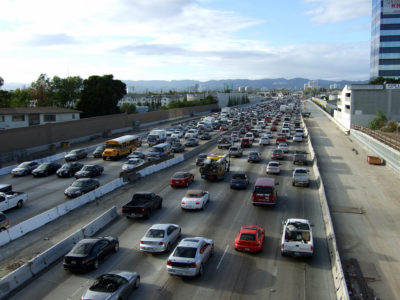Transportation
New California Report on State Climate Policies Released
Independent Emissions Market Advisory Committee Recommends Focus on Transportation, Affordability, Allowance Banking, Allowance Supply and the Effects of Overlapping Policies in the Regional Electricity Market
The California Independent Emissions Market Advisory Committee released its annual report yesterday making recommendations about California climate policy. I serve as the Vice Chair of the committee and as the Speaker of the Assembly’s appointee. Our report makes five recommendations: that the state focus on the affordability of its carbon policies, with special concern about …
Continue reading “New California Report on State Climate Policies Released”
CONTINUE READINGDriving away gasoline for good
Senator Chuck Schumer’s proposal is “Cash for Clunkers” again, at unprecedented scale
Last week, Senate Democratic Minority Leader Chuck Schumer published an op-ed in the New York Times describing a new federal proposal for replacing all gasoline-powered vehicles in the U.S. with zero emission vehicles by 2040. This is a laudable goal and a great opportunity – comprehensive federal policy to replace all gasoline-powered vehicles with zero-emission …
Continue reading “Driving away gasoline for good”
CONTINUE READINGHow Can We Achieve a Carbon-Neutral Transportation Sector by 2050?
Developments from a hearing before the House Subcommittee on Environment and Climate Change
Today, the Subcommittee on Environment and Climate Change of the House Committee on Energy and Commerce held a hearing entitled “Building a 100 Percent Clean Economy: Solutions For Planes, Trains and Everything Beyond Automobiles.” As the title suggests, the Subcommittee’s hearing sought to probe opportunities to decarbonize the transportation sector while focusing on modes of …
Continue reading “How Can We Achieve a Carbon-Neutral Transportation Sector by 2050?”
CONTINUE READINGGetting to 2050
A roadmap for achieving an 80% emissions cut.
To do its part in keeping climate change to tolerable levels, the United States needs to cut its carbon emissions at least 80% below 1990 levels by 2050. That’s not just a matter of decarbonizing the electricity sector; it means changes in everything from aviation to steel manufacture, and reducing not only CO2 but also …
Continue reading “Getting to 2050”
CONTINUE READINGWe’re Never Going to Meet Our GHG Transportation Goals Unless We Radically Rethink Our Cities
Introducing an ongoing series focused on reducing vehicle miles traveled as a crucial climate mitigation strategy
I’ve been thinking a lot lately about vehicle miles traveled, or VMT. Specifically, why is it so hard to get people to think seriously about reducing VMT as a climate mitigation strategy? Building on my earlier ode to electric scooters, this post begins a semi-regular series on different aspects of VMT reduction strategies, beginning with …
CONTINUE READINGTear Up the Dodger Stadium Parking Lot
It’s not just the Dodgers’ bullpen that needs revision
The Los Angeles Dodgers’ second consecutive World Series flameout has management considering a number of important off-season questions. What is Clayton Kershaw’s future at the club? Will Manny Machado, who reportedly left the stadium after Game 4 wearing a “Villains” backwards cap, get the boot? Here at the Emmett Institute, we have been pondering another …
Continue reading “Tear Up the Dodger Stadium Parking Lot”
CONTINUE READINGVMT Mitigation Webinar – Tuesday October 30, 10-11am
Berkeley Law’s free event will feature the Governor’s Office of Planning and Research
Under Senate Bill 743 (Steinberg, 2013), California law now requires developers of new projects, like apartment buildings, offices, and roads, to analyze and mitigate the amount of additional driving miles the projects generate. To facilitate compliance with SB 743, some local and regional leaders are considering creating “banks” or “exchanges” to allow developers to fund …
Continue reading “VMT Mitigation Webinar – Tuesday October 30, 10-11am”
CONTINUE READINGHow I Learned to Stop Worrying and Love the Scooter
Criticism of electric scooters misses the climate change and pedestrian safety benefits
If you live in a major city on the West Coast or in handful of cities on the East Coast, you probably have an opinion on the electric scooters that have been dropped haphazardly onto your local streets and sidewalks. And it’s probably not a positive one. But I’m here to tell you why scooters …
Continue reading “How I Learned to Stop Worrying and Love the Scooter”
CONTINUE READINGWhere Does California Stand On Managing Vehicle Pollution?
4 stories to watch as policymakers aim for cleaner air and safer streets
While California has been a decades-long leader in technologies and policies to reduce smog from cars, the state has in recent years been seriously ramping up efforts to simultaneously deliver cuts to vehicle carbon emissions, one of the state’s most stubborn climate policy challenges. Vehicle pollution poses both long-term risks for climate change and immediate …
Continue reading “Where Does California Stand On Managing Vehicle Pollution?”
CONTINUE READINGYou’re Invited! UCLA Law Events at the Global Climate Action Summit
Affiliate events will cover UC Carbon Neutrality Initiative, sustainability in Los Angeles and transportation revolutions
UCLA Law is coming to the Bay Area next week for the Global Climate Action Summit, a major gathering of climate leaders from states, cities, universities, the private sector and civil society to advance action on global warming. Jurisdictions and organizations involved are moving forward with new commitments. Last week, the California legislature sent one …
Continue reading “You’re Invited! UCLA Law Events at the Global Climate Action Summit”
CONTINUE READING



